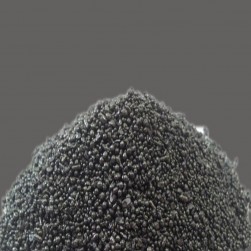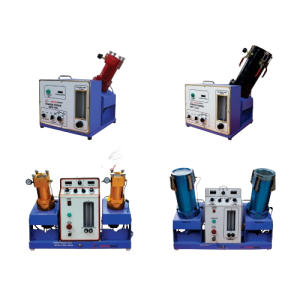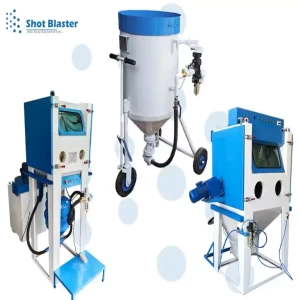Q. What is steel shot used for?
Search
All Categories & Products

Ps Balls
PS Ball is an abbreviation of Precious Slag Ball, an innovative material that will be produced by the rapid cooling of slag generated from steel making process by means of our own Slag Atomizing Technology (SAT).

| Color | Black |
| State | Grains |
| Hardness | 7.5 mohs |
| Types of Cutting | Sand blasting |
| Density | 3.64 g/㎤ |
| Fe2O3 | 43.5% |
| SiO2 |
19.5% |
Precious Slag Ball
PS Ball stands for Precious Slag Ball, PS Ball is an environment-friendly material proved by the Ministry of Environment. It's superior characteristics compared to sand or copper slag in its compressive strength, hardness, and anti weathering. It is being generally used in the field of ship repair industries and oil refinery plant maintenance for shot blasting purposes, PS Ball itself has shaped in a stable and safe form, not a pollutant, and harder than copper slag or garnet sand.
Applications of Ps Balls
Less risky to the operators and neighbors, low levels of dangerous contaminants, such as asbestos (in olivine) and arsenic (in copper slag).
- Exhaust less dust under normal usage conditions than Copper Slag and Garnet.
- Easy use with high productivity without replacing shot blasting equipment.
- Durability to allow collection, reclamation, and reuse.
It is being widely utilized in the field of ship repair industries and petroleum refinery plant maintenance for shot blasting purposes, Precious PS Balls itself has shaped during a stable and safe form, not pollutants and harder than Sand.
Comparison with Other Abrasives
A. Comparison data with other Abrasive
|
Content |
PS Ball |
Silica |
Garnet |
Glass Bead |
Steel Ball |
|
Gravity |
3.45 |
2.62 |
4.2 |
2.6 |
7.2 |
|
Mohs Hardness |
7.5 |
5.5 |
7.5 |
5 |
8.5 |
|
Rockwell Hardness |
43 |
30 |
40 |
28 |
50 |
|
Brightness |
Very Good |
Normal |
Good |
Normal |
Very Good |
|
Reusability |
2~3 |
No |
3~4 |
No |
10~12 |
|
Facilities Changeable |
Simply |
Simply |
Simply |
Normal |
Difficult |
|
Dispose of Waste Material |
Non-scheduled |
Scheduled |
Scheduled |
Scheduled |
Scheduled |
B. Comparison Data of Performance by particle size
|
Test Items |
Test Sizes |
Test Material Sand |
Test Material PS Ball |
Test Material Steel ball |
|
Surface Roughness (µm) |
0.4-1.0 mm 1.0-2.0 mm |
50 µm 70 µm |
80 µm 145 µm |
90 µm 220 µm |
|
Remaining Particle on the blasted face (mg/m²) |
0.4-1.0 mm 1.0-2.0 mm |
350 mg/m² 460 mg/m² |
92 mg/m² 127 mg/m² |
15 mg/m² 20 mg/m² |
Different Sizes of Ps Balls
Common Size
- Under 0.6 mm
- 0.6~1.0mm (0.8~1.2mm)
- 1.0~2.0mm (1.2~2.5mm)
Mixed Size
- 0.6~2.0mm (0.8~2.5mm)
- 0.1~5.0mm (0.1~5.0mm)
Industrial Uses
- Steel Bridges.
- Heavy Steel Structure.
- Storage Tanks.
- Shipbuilding.
PS Balls for Sale in India
We are the leading manufacturer of PS Balls, steel grit, steel shots, Metal Spray Gun, Thermal Spray Gun, & Spare Parts. PS balls and metalizing gun price is low with the finest quality. We work according to the client and focuses on client satisfaction.
PS Balls Manufacturer in India
We are PS Balls, steel shots, aluminum oxide, copper slag, steel grit, garnet sand, quartz shot, SS shot, glass beads manufacturer, exporter and supplier in India. Dustless blasting machine provides a large range of PS Balls products and are checked on various parameters, such as density, physical and chemical properties, microstructure, hardness, durability. We are focused on our quality products and customer satisfaction.
Contact us today for latest PS Balls Price in India.
Ans.
Steel shot is a form of ballistic substance that is used as a projectile in shotguns and pellet guns, as well as for abrasive blast cleaning and shot peening.
Q. What are the properties of steel shot?
Ans.
Hardness, shape, size, toughness, wear resistance, and low cost are all requirements for carbon steel shot. This article describes some of the elements that allow the required qualities to be realised. When exposed to air, the iron in carbon steel oxidises. Iron oxide is formed when iron and oxygen combine.
Q. How is steel shot manufactured?
Ans.
Water jet and centrifugation are combined in rotational centrifugation. Place the molten steel in specialized equipment and rotate it through a metal membrane. The metal will form small droplets and descend vertically into the water as a result of the centrifugal force and surface tension, eventually forming steel shots.

